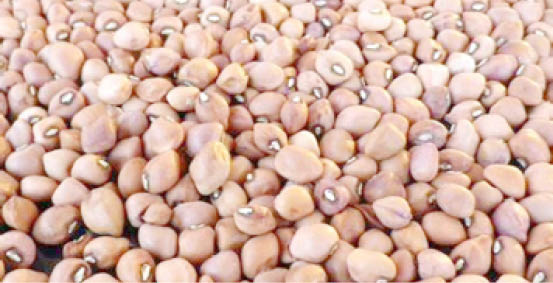In West Africa, particularly Nigeria, few crops play a vital role in food security, one of which is cowpea. The grain legume crop is a cheap source of protein for about 72 percent of households. Cowpea is well known for its potential to increase nutrition security, generate income for smallholder farmers and vendors along the value chain, and reduce poverty.
Cowpea is known for its adaptability to drier regions. However, due to climatic changes and harsh environmental conditions in these regions, the crop’s production has expanded to the Guinea savanna with crop-friendly environmental conditions such as sufficient rainfall. With about 60–68 percent of women farmers involved in cowpea production, most farmers in the savanna region cultivate this crop using an intercropping system.
The intercropping system of farming, as opposed to the sole cropping farming system, allows the cultivation of two or more crops simultaneously on a field. The intercropping farming system is quite effective and economical as it increases yields on a given piece of land, guards against total crop failure (a common challenge of mono-cropping), improves soil fertility, and increases soil conservation. In this case, cowpea is planted mainly with maize.
While this farming system has proved effective as it fits in the region’s low-input and labor-intensive method of cultivation, there are still peculiar setbacks in cowpea production that result in meager yield. A crucial drawback includes intercropping unsuitable cowpea varieties.
Cowpea varieties with indeterminate growth habits are far more suitable to intercrop with maize as they do not flower around the same time, giving them more time to recover from the negative effect of shading from maize. Moreso, the adoption of cowpea varieties with high yield and quality traits desired by farmers and consumers in terms of resistance to pests and diseases, maturity, seed color, texture, and size would increase cowpea production.
A recent study by researchers from IITA, University of Agriculture Makurdi; and Bayero University Kano evaluated the agronomic performances and productivity of new cowpea cultivars under multiple cropping systems. The study also focused on identifying suitable candidates’ cultivars with high-yield performance in the intercropping system predominant in the Guinea savanna region of the country.
The researchers carried out on-station and on-farm trials of newly developed cowpea cultivars, and two cultivars—UAM14-122-17-7 (FUAMPEA 3) and UAM 14-123-18-3 (FUAMPEA 4)—performed exceptionally. While the former displayed better adaptability for relay intercrop due to its high-yielding performance, the latter exhibited desired seed quality traits with its brilliant performance under sole-cropping and intercropping farming systems. These two cultivars have since been released for commercial cultivation in Nigeria where smallholder farmers can now increase productivity and yields thereby increasing their source of income and improving their livelihoods.
SOURCE: IITA

 Join Daily Trust WhatsApp Community For Quick Access To News and Happenings Around You.
Join Daily Trust WhatsApp Community For Quick Access To News and Happenings Around You.


